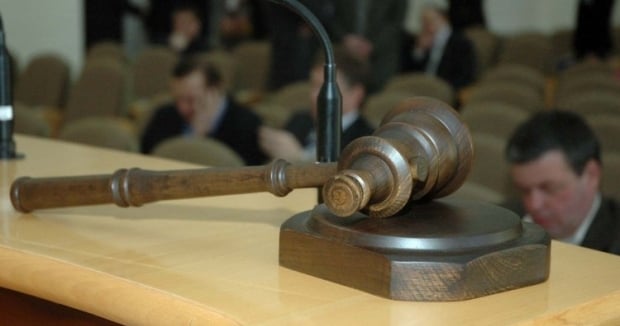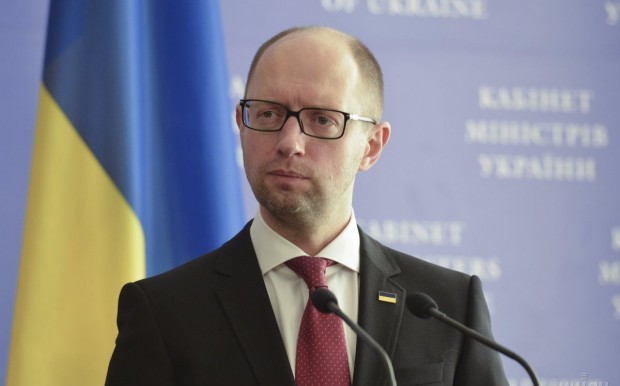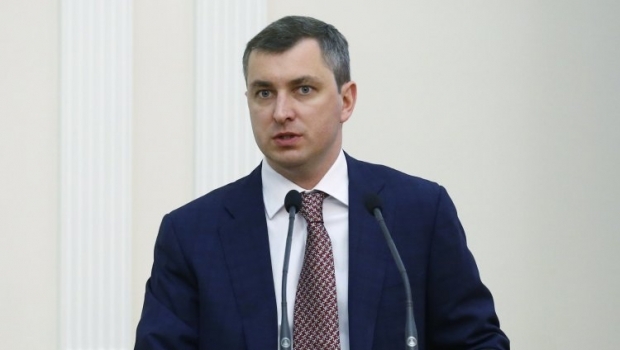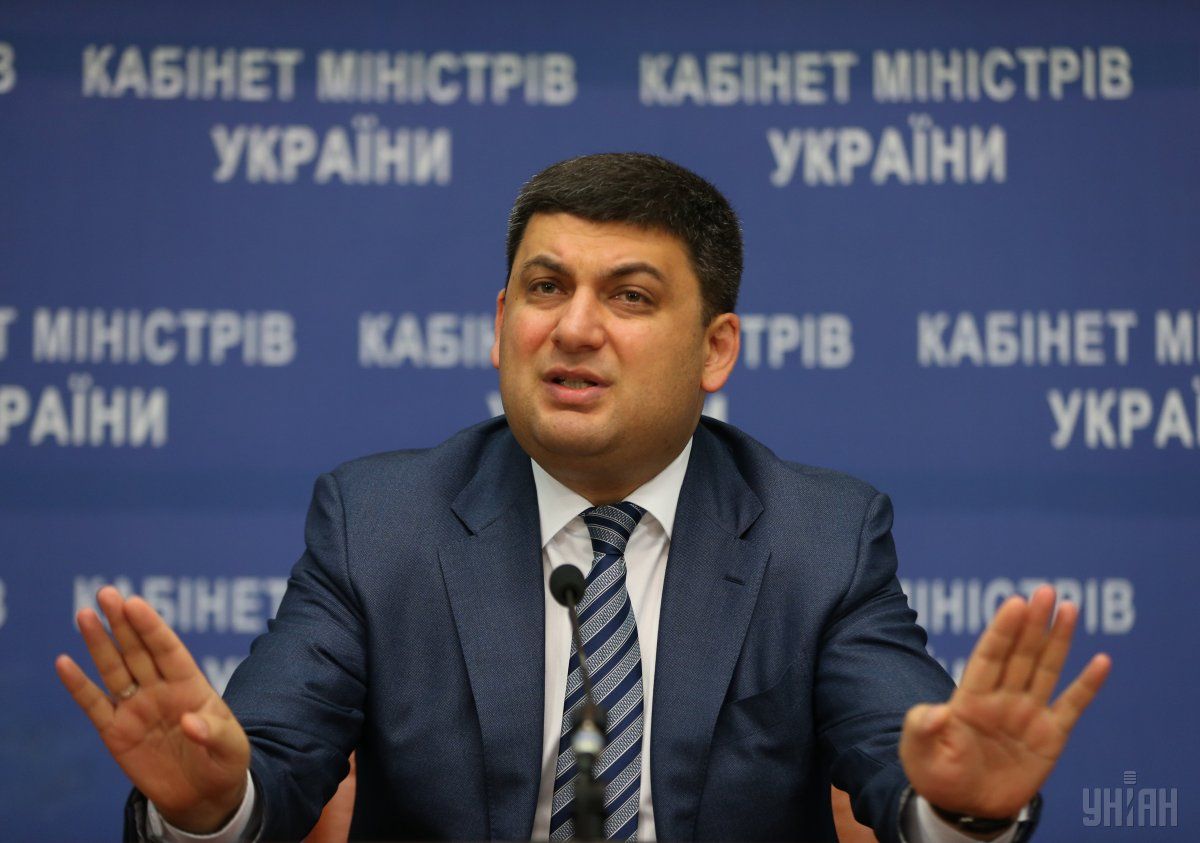
Sale of state assets: A thorny path
Volodymyr Groysman’s Cabinet announced plans for a large-scale sale of state-owned enterprises. But for their realization, after two years of various setbacks, the government will have to show remarkable ingenuity, in order to both prepare the SOEs for privatization, and refute the populists in parliament.
Ahead of the adoption of the state budget for 2017, the Government led by Volodymyr Groysman has once again announced its plans for a grand sale of state-owned enterprises.
"We have nearly 3,500 state-owned enterprises, while the European countries have approximately 300 each. Hundreds of these enterprises are managed inefficiently, being the source of corruption and state funds siphoning. Therefore, we will be offering some of them for a transparent privatization," said the prime minister.
By the way, Groysman’s Cabinet decided to put up on the list for prvatization320 enterprises more than the government of his predecessor, Arseniy Yatsenyuk.
Among the added companies, there are both profitable (Turboatom, Scientific-Technical Complex Elektronpribor, Ukrainian Danube Shipping Company), and unprofitable ones. For example, the State Food and Grain corporation, Cherkasy Tool-Making plant, Khimtekstilmash, and Ukrtsink have all been generating losses. The losing group of companies is much bigger, so there is no sense to keep them on the state's balance sheet.
Selling at all costs
In 2016, the privatization revenue target was set at UAH 17 billion. Most likely, these plans are never to be fulfilled this year. However, the State Property Fund, which is responsible for the privatization, is not giving up, still promising to close the budget hole.
That is why the SPF seeks till the end of the year to sell at all costs the pearl of Ukraine’s chemical industry, the Odesa Portside Chemical Plant, as well as the state-owned shares in major energy companies: Khmelnytskoblenergo, Mykolaivoblenergo, Kharkivoblenergo, Ternopiloblenergo, Zaporizhiaoblenergo, and Cherkasyoblenergo.
"I have no expectation that the privatization plan will be fully implemented this year," Deputy Head of the Special Control Commission of the Verkhovna Rada on Privatization Pavlo Rizanenko has told UNIAN in his comments.
There has neither been any large-scale privatization during Yatsenyuk’s premiership. And it’s not the government’s fault, really. Rather, it’s the general political situation in the country and the ongoing Russian aggression has not contributed to this [privatization].

Corruption is another negative factor in the privatization process. Thus, PM Yatsenyuk, who had gone to France and captured the interest of Gaz de France in the purchase of Centrenergo, failed to finish the job. The officials sitting on financial flows of the energy company did not allow the Energy Ministry to hand a 78.3% stake in the company over to the State Property Fund to prepare for privatization.
Meanwhile, the situation with the Odesa Portside Chemical Plant is purely ridiculous. Another attempt to sell it is scheduled for late October - early November. The competition earlier scheduled for July did not take place due to lack of bids from investors, although at least two of them were definitely supposed to be placed.
It is believed that investors were scared off by the starting price of the enterprise amounting to UAH 13.175 billion, or $520 million. The experts from the International Monetary Fund and the European Bank for Reconstruction and Development before the auction was announced named such starting price excessive, the one which would scare off the buyers.
The State Property Fund, albeit belatedly, listened to their opinion, now intending to reduce the starting price almost twofold, to $250-300 million.
Meanwhile, former head of the State Property Fund Oleksandr Bondar believes that this price is too low for such a facility.
"Selling this company for $250 million means giving t away almost for free," he said, adding that if it’s to be sold so cheap, it made no sense from the beginning in hiring such expensive advisors who have been helping the SPF prepare the plant for privatization since 2015.
Indeed, in this case, it would be much more profitable for the government to give this SOE to Nortima, which in 2009 had already won an auction for the sale of the OPP, suggesting the price in the equivalent of $624 million. But the government of Yulia Tymoshenko disrupted the competition. Now the company defends its rights in court and considers the OPP’s future privatization an acquisition of stolen property.
Sales in Energy Industry
Particularly acute is the issue with the privatization of regional power companies, which will take place during the heating season. The Cabinet has been talking of the sale since last year, but the auctions have been postponed repeatedly. This time, head of the SPF Ihor Bilous vows to start selling the power companies in October.

"The auctions will begin starting October: October, November and December - in three groups of two companies each," said Bilous.
The first group will be 50.9% of the shares of Ternopiloblenergo and 70% shares of Khmelnytskoblenergo, the second - 65% of Kharkivoblenergo and 70% of Mykolaivoblenergo, and the third - 60.2% of Zaporizhiaoblenergo and 46% of Cherkasyoblenergo.
According to the SPF chief, the investors from India, Hungary, Austria, Poland, and the United States have shown interest in Ukraine’s regional power companies. As of today, eight agreements of confidentiality have been signed with potential buyers, with their names not being disclosed. It is only known that six of the potential buyers are foreign parties.
The starting price of power companies has not yet been announced, but Bilous had earlier noted that all packages can fetch some $300 million in revenue.
For the successful privatization of power companies, both the experts and the SPF believe that the Verkhovna Rada has to adopt laws on the National Energy and Utilities Regulation Commission, on the electricity market, and on the RAB-tariffs, which would stimulate the attraction of investments to the power sector.
To avoid problems with the management, the SPF initiated competitions to fill vacant management positions in these energy companies. At the moment, the acting top managers are in charge at Cherkasyoblenergo, Ternopiloblenergo, Khmelnytskoblenergo, Kharkivoblenergo, and Zaporizhiaoblenergo.
"Our task, along with the preparation for privatization, is to establish normal business processes at the enterprises, making them more efficient," deputy head of the SPF Volodymyr Derzhavin said in his comments on the Fund’s move.
Cabinet’s controversial proposal
Unlike Yatsenyuk’s Government, the Groysman’s Cabinet decided to add to the list of the companies to be privatized some enterprises from the machine-buiding industry, the agricultural sector, and metallurgy. At the same time, some of these companies remain in the list of SOEs banned from privatization, and their sale will need Parliament’s approval.
Ex-head of the State Property Fund Oleksandr Bondar believes that the deputies will not support the Government’s initiative, as the executive branch has failed to privatize any large enterprise over the past two years.
"If the Fund and the Cabinet did not show how they could sell the companies, who of the deputies will vote for letting them privatize more companies? No one will unlock the restriction. It makes no sense," he said.
There is also the deputies’ opinion on the matter. "The latest changes to this list [of companies banned from privatization] were adopted back in 2012. They were always passed with some problems because there are many convergent interests of various factions and parties. This is a complex process. Nobody would guarantee that this will happen," said Rizanenko.
Head of the Verkhovna Rada Committee on Industrial Policy and Entrepreneurship Viktor Galasyuk made an even rougher comment on Facebook. He slammed the decision to sell a super profitable Turboatom.
"I believe such actions are an economic crime against the state. It's the chicken that lays the golden eggs! Selling it is pure madness," he wrote.
Indeed, there is certainly some logic and the deputy’s words. Turboatom is a profitable state-owned enterprise, which in the last year alone received UAH 1.6 billion in net profit, of which the state received UAH 921 million in dividends.
In turn, the SPF chief said that the company was included in the list for privatization in order to analyze its activities and make a decision on its future prospects. He did not rule a merger of Turboatom with Electrotyazhmash in a consortium to increase its competitiveness in the international market.
At the same time, Ukraine’s agricultural giant the State Food and Grain Corporation is a loss-making enterprise: in 1H 2016, the company showed a UAH 79.6 million net loss. The agrarian ministry stands for the company’s privatization.
A potential buyer may become the corporation’s key partner, the State Industrial Corporation of China CCEC. "CCEC is considering this proposal and they have no reason not to agree," said the acting head of the SFGSU, Borys Pryhodko.
The Ukrainian corporation has long established a really close corporation with China. The SGFC had earlier received a $1.5 billion loan from the Export-Import Bank of China. Therefore it would not be surprising if a major Chinese player appeared on the Ukrainian agricultural market.
Another powerful agricultural enterprise, which can be sold in 2017, is a monopoly Ukrspirt. The company last year recorded a UAH 16 million net profit, although in 2014 it saw a negative financial result with a UAH 532 million net loss. Numerous corruption scandals have flared around Ukrspirt over the recent years, and then flare up corruption scandals. Between 2012 and 2015, the State Financial Inspection has revealed violations amounting to UAH 2.3 billion. At this, the monopoly has operated without an appointed CEO for several years, while four competitions for the position of the company leader saw no result.
In addition, the complexity of Ukrspirt’s sale lies in the fact that it consists of distilleries scattered all over the country. At the same time, of 41 of them, only one-third is still operating, at best. Therefore, the main thing for the buyer will not be the company itself, but the license, allowing to produce alcohol, upgrading or building new distilleries.
Speaking of the price of Ukrspirt, Minister of Agrarian Policy Taras Kutovyi said that the state budget can be replenished by $200-400 million due to the monopoly’s sale.
Potential buyers can be the Ukrainian alcoholic beverage producers that purchase from Ukrspirt the required alcohol for their products.
We can already say that there will be no clear position in Parliament regarding the privatization of large SOEs. Therefore, the Cabinet and the State Property Fund should from the first days of the new parliamentary session be holding consultations with the MPs, persuading them to support the sale of state assets.

"Parliament should know everything. Everything must take place openly and publicly. I have a request to the State Property Fund to hold a public debate with the factions, give an explanation for every hryvnia, every dollar, for the assessment, and market conditions," said the prime minister, making a step toward parliamentarians.
But it is worth noting that certain groups of people's deputies opposed to privatization at all times. Parliamentarians have always emphasized the impossibility of selling the national property, only offering to sell them at a high price and unrealistic conditions. Hence, delays or cancelation of privatization efforts. Meanwhile, the investors were turning their heads to some more attractive destinations, not willing to wait for positive decisions of the Ukrainian authorities. At this time, certain clans continued to control financial flows from the SOEs suck the last juices out of their assets.
"The main reason for the process drag is corruption. The officials don’t wish to sell assets, on the financial flow thereof they feed," said the expert of the debt securities sales department at Dragon Capital Serhiy Fursa.
One way or another, but the government has not yet closed the UAH 17 billion gap in the budget, which is supposed to come from the privatization in 2016. It only has four months left to achieve this goal.
As a summary, it should be noted that the privatization issue is becoming increasingly important with every year, but no real action has almost been made in this direction, in particular, because of the different views on this issue of the legislative and executive power branches.
We must not forget that any foreign investor would calculate all risks before taking part in the privatization. First of all, they analyze legislative conditions for investment, the level of social tension, the possibility of military action, and the level of corruption in the country. Thus, if the Ukrainian state-owned assets become an object of interest of certain investors, most of these potential buyers would also be Ukrainian.
Vitaliy Chuiko (UNIAN)

